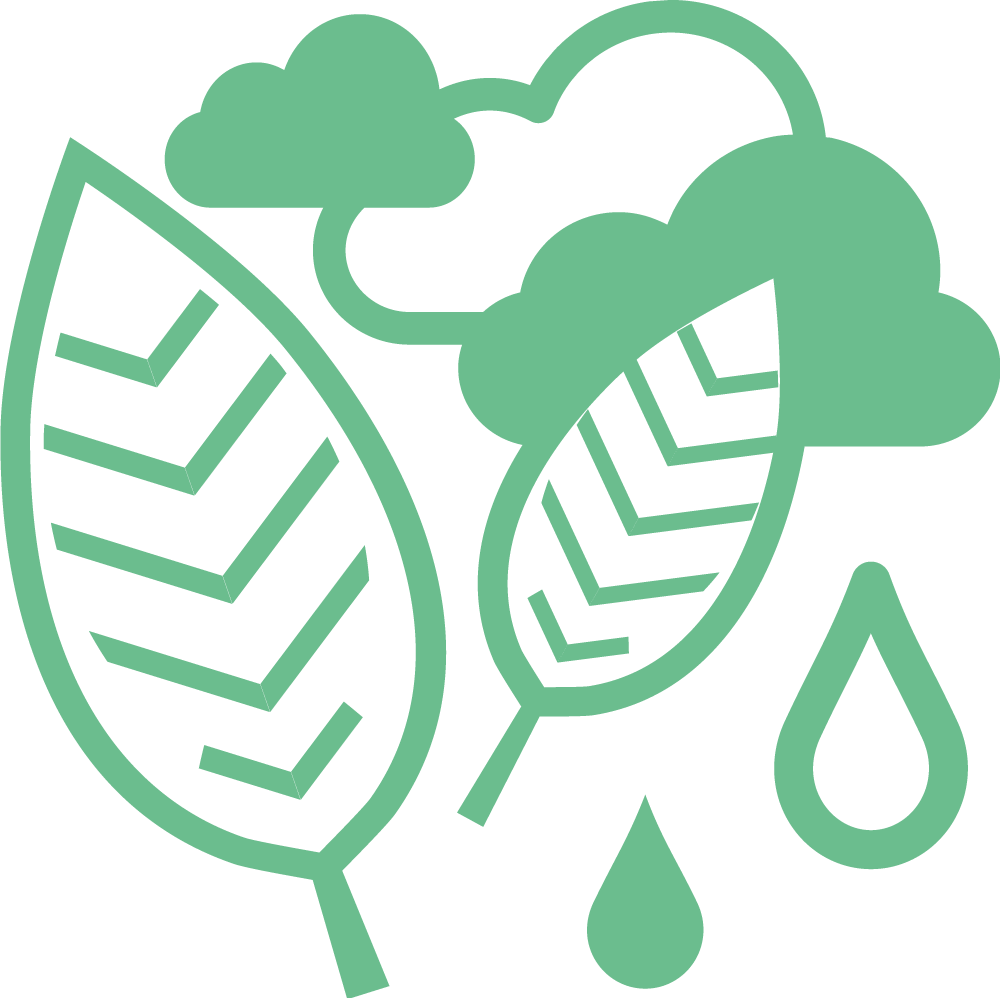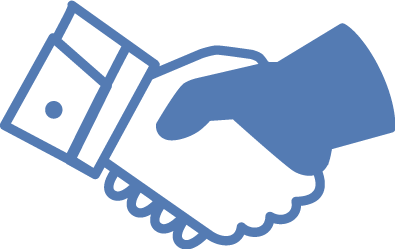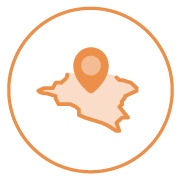Digging deeper
Supporting
Responsible Mining
with Data-Driven
Community Engagement
Project description
Yamana Gold is a Canadian-based precious metals producer with properties located in mining-friendly jurisdictions across the Americas, in Canada, Brazil, Chile and Argentina. The organization is committed to operating transparently and responsibly, in alignment with sound environmental, social and governance (ESG) principles, and with their corporate values, which are: delivering high performance, acting with integrity, keeping people safe and respecting the environment.
Yamana’s Wasamac underground mining project is currently progressing in the prolific Abitibi region of Quebec.
Challenges
In Quebec, large-scale mining projects are subject to environmental regulations overseen at the provincial level by the Ministry of the Environment and the Fight Against Climate Change (in French: Ministère de l’Environnement et de la Lutte contre les changements climatiques, or MELCC). These projects are required to consult with local populations about environmental issues. Yamana needed to find a solution that would help it:
- structure and develop its mandated stakeholder engagement initiatives and impact studies,
- build social acceptance and develop trust-based relationships with the community, and
- centralize its stakeholder information while making it accessible to members of the team working in different locations.
Solution
Key Benefits
Automated reporting leaves time for deeper analysis.
Before implementing Borealis, the consultant had to take the time compile indicators for a monthly report. With Borealis, this is just a matter of clicking a button. They use a widget to pull out the necessary data and target concerns by work group. This greater efficiency allows the consultant to focus on analyzing the data, which allows them to push a lot farther their comprehension of the relevant issues and provide more value to the client in the same amount of time.
Yamana can assure stakeholders that their concerns will be addressed in a timely manner.
Tasks in Borealis remain open until they are formally resolved, which ensures that nothing slips through the cracks. Borealis makes it easy to track global commitments and follow-ups, which helps the team build trust and a good relationship with the community.
‘‘The goal is for stakeholders to reach an attentive ear every time they contact Yamana, about any topic. Borealis ensures that everyone can monitor response time to be sure that appropriate follow-ups are provided.’’
Philippe Angers, Transfer Environment and Society
A well-documented engagement history makes it easy to demonstrate to regulators that Yamana is committed to going above and beyond its obligations.
Historical data is accessible in just a few clicks. Yamana can easily show that the company is hearing (and documenting) stakeholders’ concerns, along with steps taken to address them. The data is open and accessible, which means that everyone on the team can see what’s happening, who did what and when, and what resulted from those actions.
A global view of the project helps ensure that there are no unpleasant surprises.
Engaging with stakeholders helps the team recognize concerns and potential problems and address them accordingly. Centralizing and structuring data in Borealis allows the user to see the big picture and make sure that risks are identified, managed, and re-evaluated as needed.
Well-documented corporate memory means there’s no need to start over for similar projects.
If Yamana goes on to develop new projects, it will benefit from the work the team has already done. Institutional memory is an important strategic investment, and the progress and stakeholder data carefully documented in Borealis will give the company a solid foundation for potential new projects.
A traceable record shows how the company has addressed risks to the community.
Yamana’s efforts to manage potential impacts include noise mitigation measures for drills and guidelines to ensure that suppliers respect the neighbourhoods where they operate. Tasks are created right in the Borealis calendar, which creates a traceable trail and shows that initiatives were handled in a timely manner.
Establishing the process
Implementing Borealis helps Yamana centralize and structure project data so everyone can do their part from their own location – a practical solution for a dispersed team. With the necessary tools in place, it was time to establish the process.
Creating a task force
Yamana took a proactive approach to community engagement from the start. To ensure that the company received input about community issues from a variety of diverse viewpoints, it created a task force made up of stakeholders from the community and members of the Yamana team. The group meets about once a month to discuss concerns as well as project impacts and benefits, establish recommendations, and identify solutions. This helps the team mitigate potential negative impacts from the project and maximize the positive ones. While the Task Force is not a mandated part of the process, implementing this kind of community outreach before public hearings and mine construction is clearly a good practice that brings great benefits.
Documenting community feedback
The subjects covered at these meetings are turned into discussion points, which are carefully documented in Borealis. That way, if a stakeholder says that a certain concern was brought up in the past, it is easy to find out how often it was raised and when. These discussion points in Borealis are then linked to subject categories to monitor the topics. After each meeting, follow-up actions are planned in Borealis, where they can be assigned to team members and completed.
- Anik Pouliot, Consultant in Public Participation, documents the questions and issues raised by the task force and creates tasks in Borealis to follow up as needed.
- Dominic Vézina, Lead Advisor, handles issues, discussions, and appropriate follow-ups with First Nations groups.
- Alexandra Cordisco-Moreau, Lead Advisor, tracks the interviews conducted with different stakeholder groups (local residents, land users, and community organizations) during the environmental and social impact study. She documents the resulting discussion points, subject categories, and engagements.
Data quality, analysis and reporting
Philippe Angers is a project manager at TES and the Borealis Superuser for Yamana Gold. He decides how to structure and categorize the data entered in the system. He manages data quality to prevent duplicate entries and ensure that records are complete. From there, he analyzes the data, evaluates risks, creates reports, and offers advice and guidance.
“Each month I produce a report for the Task Force. I created a widget that shows me the entire history by stakeholder, topic, or event at the press of a button. Widgets make monthly reporting much simpler.”
Philippe Angers, Transfer Environment and Society
“Distribution lists are magic.”
Philippe Angers, Transfer Environment and Society
Putting their data to work
Marcel St-Pierre is a superintendent for Yamana at the Wasamac site. He uses Borealis to prepare, send, and receive stakeholder communications and to enter communications and grievances.
“The most useful features are being able to manage stakeholder contact information with the application on my cell phone and being able to enter information about situations occurring in the field right in the application.”
Marcel St-Pierre, Yamana Gold
“Before contacting an individual, I look at previous communications to see if they have already been made aware of the information I need to share, or if any other issues have arisen with them recently.”
Marcel St-Pierre, Yamana Gold
“Borealis helps us collect stakeholder comments during our consultation activities and plan the necessary measures and commitments to address them. During future public hearings, our teams are confident that they can quickly and easily retrieve information associated with the consultation process.”
Marc-André Lavergne, General Manager, Regional and Wasamac.
The Benefits of using an SRM solution with a consultant
Including a consultant in their Borealis workflow allows everyone involved to focus on their own specialty.
Some mining organizations don’t have much time to document their engagements, and some people see it as an administrative task that can be put off in favor of actively engaging with stakeholders. Unfortunately, if data is not recorded promptly, it can easily be lost or forgotten as the project moves on.
Since it is TES’s role to manage this information, using the platform is central to their daily tasks. The TES team ensures that important interactions are well documented and properly categorized as part of the corporate record.
Philippe Angers has the freedom to structure the data and develop best practices for data management as he sees fit. Borealis helps him to identify risks based on the data, which allows him to make better decisions. For example, tracking discussion points allows the team to quickly identify recurring concerns so they can take steps to address them. This not only helps Yamana to mitigate potential risks, but also builds trust with stakeholders. The knowledge helps them to engage more effectively to find an appropriate resolution.
By providing fit-for-purpose tools, Yamana helps Philippe Angers provide even more valuable insights. Implementing a stakeholder management system automates much of the necessary reporting. Instead of spending time compiling reports and sorting through piles of spreadsheets, Philippe can focus on analyzing the data, using his unique expertise to offer the best possible guidance.
And, of course, Yamana remains in control of the platform. If members of the project team change or new staff is brought on board, the company can easily grant access to the data as needed to pick up right where they left off.
Recognizing patterns in community concerns
Yamana established a consultation process to engage with the community during project development.
On several occasions, residents asked if the mining project would affect the water level of a lake in the area. Since the team tracks discussion points in Borealis, it quickly became clear that this was a recurring concern.
Yamana decided to review the existing data and conduct a sampling campaign to better document this aspect of the environment.
Stakeholders were satisfied that the concern was heard and addressed. This kind of practice helps build confidence that the Yamana team is acting in their best interests.
Not Just Software
Borealis is customized for each individual client, but learning to use the platform wasn’t simply a matter of learning new software. And of course, even with the very best tools for the job, user adoption is crucial to getting the desired results.
When the software was introduced, no processes had been established and no data had been collected. It was hard to know where to begin.
“It was definitely worth taking the time to set this up during the startup stage to be sure everything is ready when project development begins. Learning the software takes time, but there’s a big gain of time in the future.”
Philippe Angers, Transfer Environment and Society
“Borealis is essential; many people rely on me for this information.”
Philippe Angers, Transfer Environment and Society

Inspired by this great success story?
Start writing yours today!




